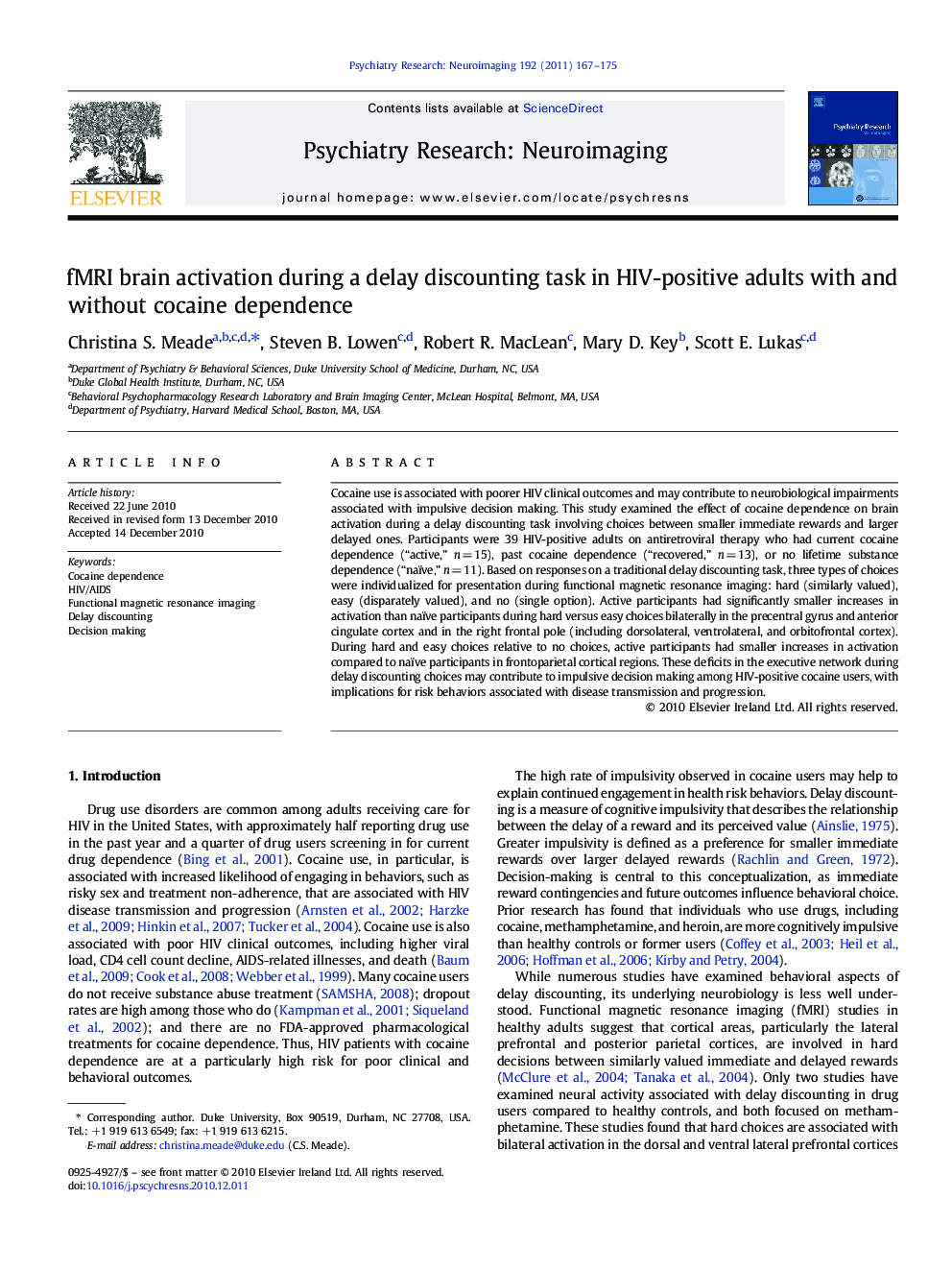| Article ID | Journal | Published Year | Pages | File Type |
|---|---|---|---|---|
| 334539 | Psychiatry Research: Neuroimaging | 2011 | 9 Pages |
Cocaine use is associated with poorer HIV clinical outcomes and may contribute to neurobiological impairments associated with impulsive decision making. This study examined the effect of cocaine dependence on brain activation during a delay discounting task involving choices between smaller immediate rewards and larger delayed ones. Participants were 39 HIV-positive adults on antiretroviral therapy who had current cocaine dependence (“active,” n = 15), past cocaine dependence (“recovered,” n = 13), or no lifetime substance dependence (“naïve,” n = 11). Based on responses on a traditional delay discounting task, three types of choices were individualized for presentation during functional magnetic resonance imaging: hard (similarly valued), easy (disparately valued), and no (single option). Active participants had significantly smaller increases in activation than naïve participants during hard versus easy choices bilaterally in the precentral gyrus and anterior cingulate cortex and in the right frontal pole (including dorsolateral, ventrolateral, and orbitofrontal cortex). During hard and easy choices relative to no choices, active participants had smaller increases in activation compared to naïve participants in frontoparietal cortical regions. These deficits in the executive network during delay discounting choices may contribute to impulsive decision making among HIV-positive cocaine users, with implications for risk behaviors associated with disease transmission and progression.
